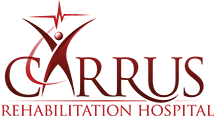
Navigating the path to recovery from a serious illness or injury is a life-altering decision, but it’s also a critical step toward reclaiming a sense of normalcy. For many faced with this challenge, the choice between outpatient and inpatient rehab services can be daunting.
The distinction between the two lies in their definitions and the support and strategies they offer for rehabilitation. This guide explores the differences between outpatient and inpatient rehab, with insights that will empower you to make the best decision for your recovery.
Understanding the Basics of Outpatient and Inpatient Rehab Centers
Inpatient rehabilitation centers offer comprehensive, round-the-clock care for individuals who require highly structured support after a significant illness, injury, or surgery.
On the other hand, outpatient rehab services are designed for those who require a lower intensity of care and can return home every day after their treatment sessions.
The Inpatient Rehab Experience
Inpatient rehab centers are transitional between an acute hospital stay and returning home. These facilities are equipped with a full complement of therapists, medical professionals, and support staff.
Here are some key aspects of the inpatient rehab experience:
Round-the-Clock Care
Patients have access to medical care, therapy, and assistance 24 hours a day. The multidisciplinary teams create tailored care plans, and patients have the advantage of intensive daily therapies, such as physical, occupational, and speech and language therapy.
Community and Support
Inpatient rehab services foster a supportive environment among patients with similar challenges. This communal setting can help individuals feel less isolated and create strong support networks.
Equipment and Facilities
Inpatient centers are usually equipped with specialized medical equipment and adaptive technologies designed to facilitate recovery. This environment ensures that patients have everything they need to progress in their rehabilitation.
The Outpatient Rehab Experience
Outpatient rehabilitation allows patients to receive treatment and therapy at clinics, hospitals, or specialized rehab centers without being admitted to a hospital. The primary benefits of this model include:
Scheduling
Outpatient rehab offers more flexibility in scheduling. Patients can work with their care team to set appointments around their work, school, or family responsibilities.
Independent Living
Because patients return home each day, they get to practice their rehab skills in their own environment with the support of familiar surroundings. This can be an empowering aspect of the recovery process.
Gradual Transition
For those not in critical condition, outpatient rehab services can offer a more gradual transition back to normal life, allowing individuals to adjust to their progress at a comfortable pace.
Making the Right Choice
Choosing between outpatient and inpatient rehab services is dependent on several considerations that are unique to each individual.
Here are some factors to weigh when making this important decision:
Severity of Your Condition and Intensity of Care Required
The severity of your condition is a primary factor to consider. If your condition is severe or long-term, you might need intensive, round-the-clock medical care and supervision. In such cases, inpatient rehab could be the most suitable choice.
On the other hand, if your condition is less severe and doesn’t require constant medical oversight, outpatient rehab might be a better fit.
Availability and Strength of Your Support System
The strength and availability of your support system at home can greatly influence your decision. If you have a robust network of family or friends who can assist with your recovery, outpatient rehab could be a viable option, allowing you to recover in the comfort of your own home.
However, if you lack a strong support system, inpatient rehab can provide the necessary care and supervision.
Financial and Insurance Considerations
Financial considerations and insurance coverage play a significant role in your decision. You’ll need to understand what costs your insurance will cover and what out-of-pocket expenses you may incur.
Both inpatient and outpatient rehab come with different costs, so it’s crucial to discuss these aspects with your healthcare provider and insurance company.
Personal Obligations and Responsibilities
Personal obligations and responsibilities, such as work, school, or family commitments, can impact your decision. Outpatient rehab offers more flexibility, allowing you to schedule treatment sessions around your daily routines.
However, if your condition is severe and requires intensive care, you might need to prioritize your health over these obligations and opt for inpatient rehab.
Accessibility of the Rehabilitation Center
The location of the rehabilitation center and its potential impact on your family dynamics should also be considered. If the center is far from home, it might be difficult for your family to visit frequently, which could affect your recovery.
On the other hand, if you choose outpatient rehab, you’ll need to ensure that you can easily travel to and from the center for your treatment sessions.
Rehab Near Me in Sherman, TX
Embarking on a journey towards recovery after a severe illness or injury requires not just time and patience, but also a supportive and caring environment. At Carrus Health Rehabilitation Hospital, we provide just that.
Our dedicated team of healthcare providers offers round-the-clock, advanced medical care to patients recovering from a variety of health conditions.
Our in-house physical rehabilitation care covers a wide range of medical conditions, with therapies and recovery programs designed specifically for patient success and functionality. We also offer outpatient services, including IV infusions, radiology services, and sleep studies, to help you gain a deeper understanding of your health.
Ready to start your journey towards recovery with us? Call us today at (903) 870-2600 or visit our office near you. We look forward to serving you!

